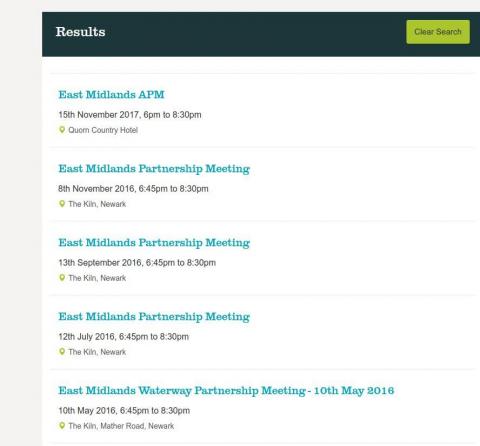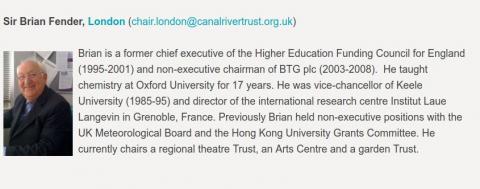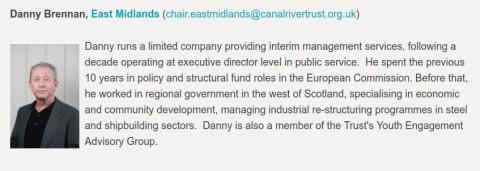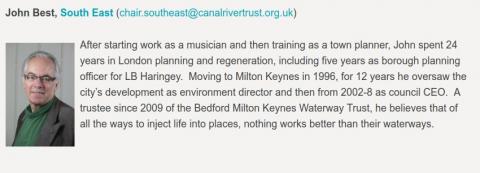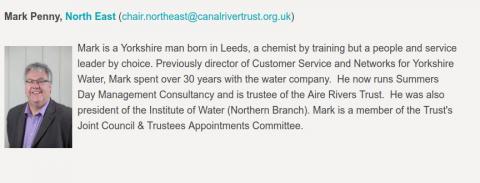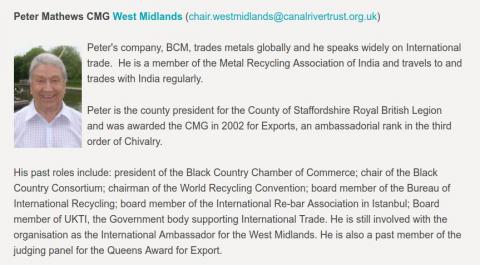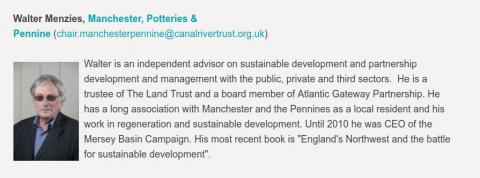Fears that C&RT is moving away from navigation priorities
December 2017 - At the Kennet & Avon Partnership meeting on Wednesday (7 December), Canal & River Trust announced that Waterways Partnerships are to be dissolved and made no mention of them being reconstituted under the new structure now out for consultation. Allan Richards looks at what seems to be developing as a substantial move away from the Trust being a navigation authority towards a much more general objective of creating 'wellness' which it hopes will attract more government cash.
Canal & River Trust has initiated a redundancy program by starting a 60 day consultation period for affected staff. This announcement follows an exodus of executives and senior managers (Another one bites the dust) and the news that the trust is to reduce its regions from ten to six.
National Association of Boat Owners says that 90 C&RT staff, including remaining waterways managers, have been given 60 days notice. However, they will be able to apply for any new jobs created by the restructure. This may be Chief Executive, Richard Parry's way of getting waterway managers to accept greater responsibility without salary increase or maybe he intends to cherry pick the ones he wants to keep.
Publicly, Richard Parry said: “These changes are about re-focusing and simplifying the organisation so that we enable everyone across the Trust to make their greatest possible contribution, to serve our customers and support local communities to enjoy their local waterway. We have to find ways to do more and cost less to ensure a secure and sustainable future for the Trust.”
Lets start with C&RT’s executive team. It was back in March that The Floater posed the question ‘Too many chiefs at C&RT?’. It was pointed out that C&RT started with six directors some five years ago but this number had now increased to nine. The problem with increasing the number of directors is that it naturally leads to an increase in the staff which in turn increases employment costs. In the case of C&RT, the number of staff employed has increased by some 200 with total employment costs rising by 30 per cent, from £50m to 65m over the last four years. That’s £15m a year that could have been spent elsewhere.
With two directors ‘stepping down’ and not replaced comes the opportunity for a reshuffle of executive responsibilities and a re-organisation. It has always been the case that one must justify redundancies on the back of a re-organisation.
The axe will fall mainly on the waterways regions with a cull of waterway managers already achieved. Three Waterway Managers will leave before the new year - one has already gone. These three positions have been filled by interim appointments with no attempt to recruit. A fourth Waterway Manager was been appointed as Interim Head of Boating some time ago following the sudden departure of Mike Grimes. Again, no attempt has been made to recruit a new Head of Boating.
The bottom line is that C&RT has its six Waterway Managers for the new ‘Super Regions’ because four of the ten current Regions are being managed as temporary appointments.
The problem that C&RT faces with its Waterways Partnerships is somewhat more difficult. How do you sell the idea to long serving volunteers that 10 Waterway Partnerships should be reduced to six, or scrapped?
It appears that C&RT attempted to handle this by keeping them in the dark until the the last possible moment and finally bluntly announcing the dissolution of all partnerships at the Kennet and Avon meeting.
That came after the plan went unmentioned at C&RT's Annual Meeting and Council Meeting and, in particular, Novembers Annual Waterways Partnership Meetings. The secrecy was achieved - standard mushroom management – and now nobody is clear whether partnerships have a future.
In recent months C&RT has also attempted to keep the public in the dark recently regarding its Partnerships. It has failed to publish information regarding Waterway Partnership meetings. As the Floater has already revealed, the Trust failed to publish details of 20 of the 27 meetings showing on its meetings calendar for the first half of its current financial year. Indeed the situation is far worse in that not all meetings held appear on its calendar.
Back in July, C&RT told its board that 69 out of 98 Waterway Partnership members would retire within 12 months having served the maximum term of office allowed. Seven out of ten Waterway Partnership chairs are amongst those 69.
It is worth pointing out that current Waterways Partnerships have become an embarrassment to C&RT senior management and directors. Back in September 2013, trustees were told by three senior managers ‘Partnerships are working on the assumption that they will have to secure funding for projects in their Action Plans. With local knowledge and contacts they may be able to forge new partnerships and secure significant grants to fund their projects. However, the Trust may choose to provide match funding for strategic initiatives on a project-by-project basis.'
Two of those making that statement have been been promoted to to directors (the other has retired). However, no funding has been secured by any of the ten Waterway Partnerships and a recent information request has found that one Waterway Partnership was provided with C&RT cash of £189,000 over a three year period, despite not raising a single penny itself.
No doubt C&RT will use the re-organisation combined with retirement of chairs to set up six new Waterways Partnerships. It appears to have little choice as Partnership chairs are involved in governance as members of C&RT’s council. No doubt these new Waterways Partnerships will be ‘wellbeing’ focused and not expected to secure funding.
Watch out for a soft relaunch of C&RT as a ‘wellbeing’ charity next financial year perhaps accompanied by a new logo, one it will be able to extend to the 'wellbeing' of the multiple users of the Environment Agency waters it is now asking the government to hand over.
... and spare a thought for C&RT staff who will spend Christmas wondering if they will have a job in the new year.
Photos: (1st) Waterways partnerships' recent calendar, (2nd) Waterways Chair Brian Fen - retiring, (3rd) Waterways Chair Danny Brennan - retiring, (4th) Waterways Chair John Best - retiring, (5th) Waterways Chair Mark Penny - retiring, (6th) Waterways Chair Peter Matthews - retiring, (7th) Waterways Chair Tamsin Phipps - retiring, (8th) Waterways Chair Walter Menzies - retiring.






